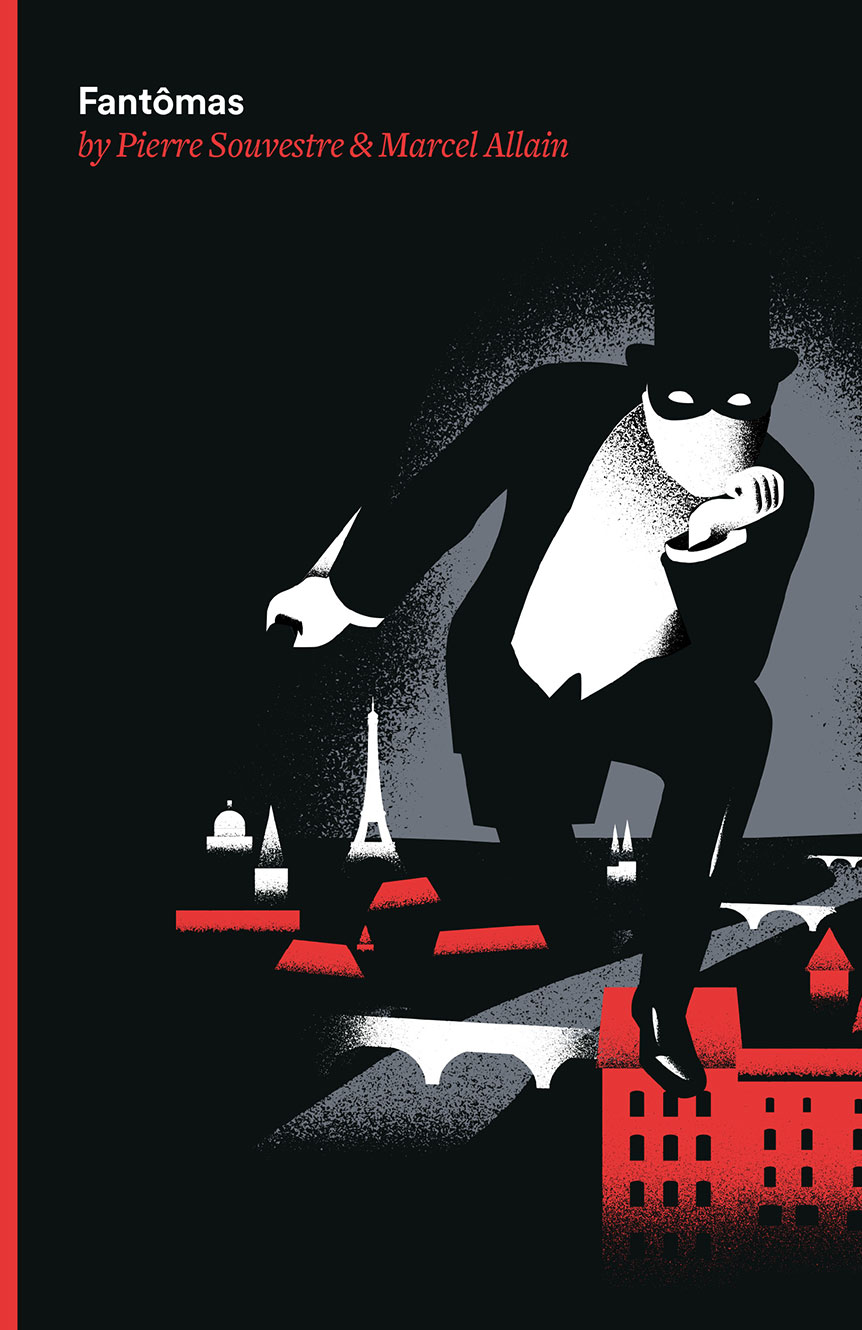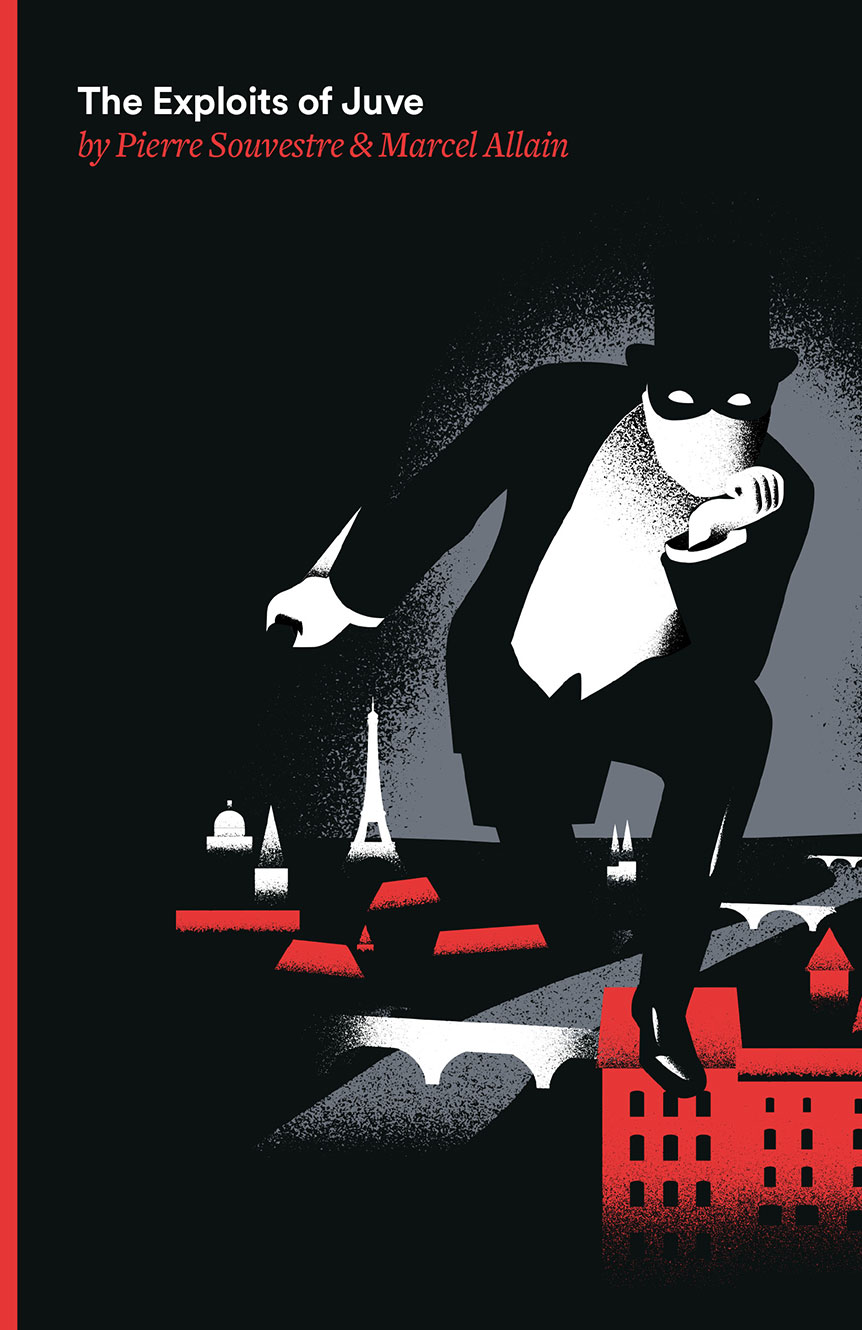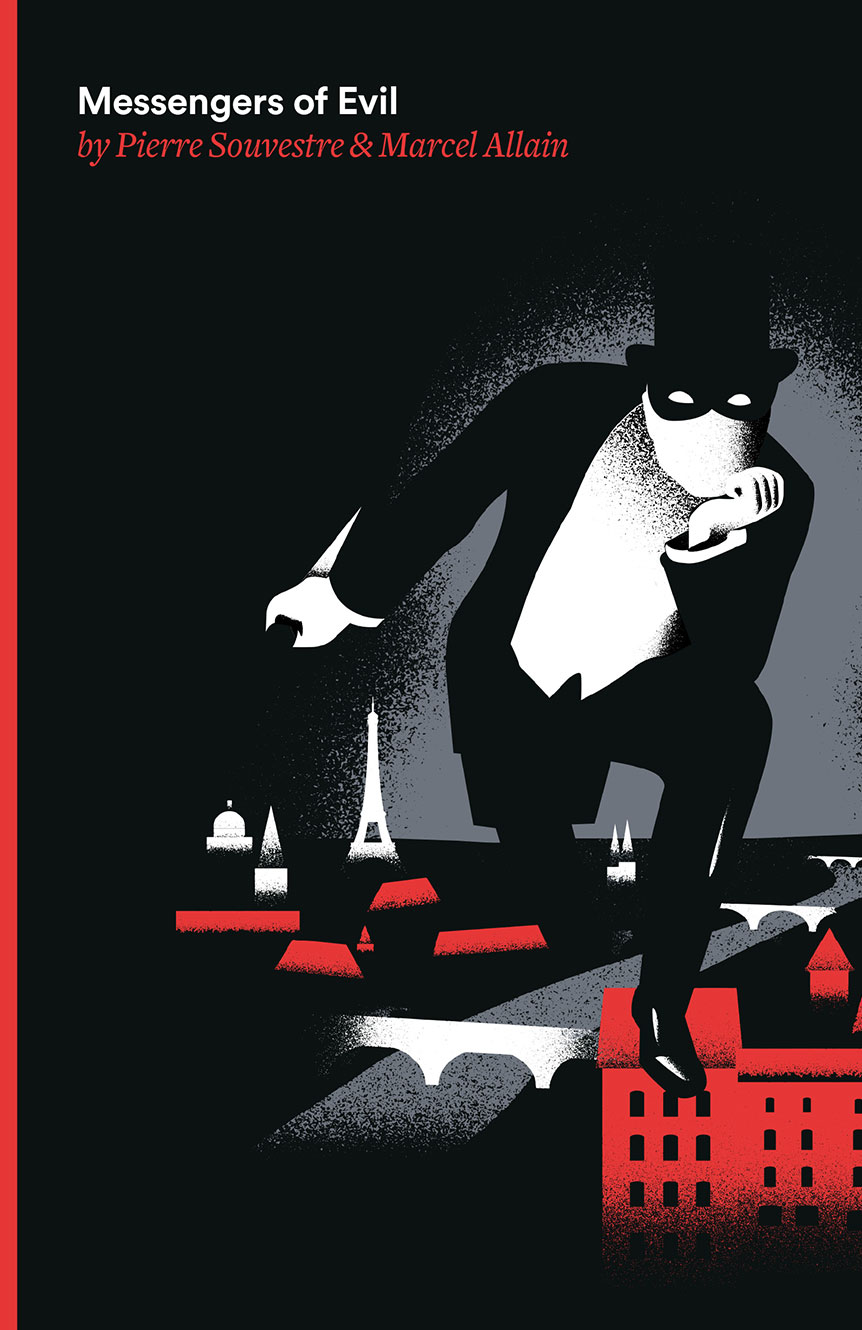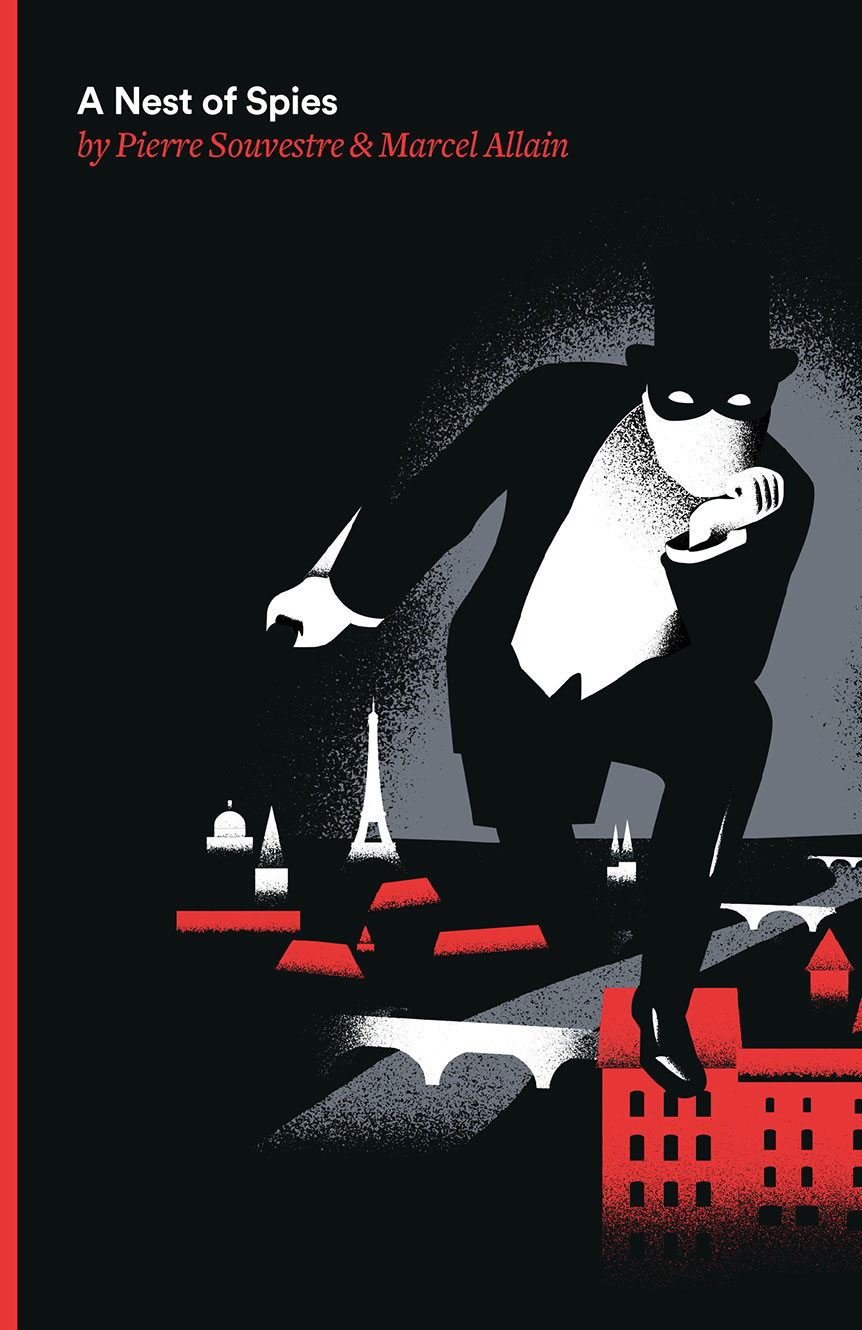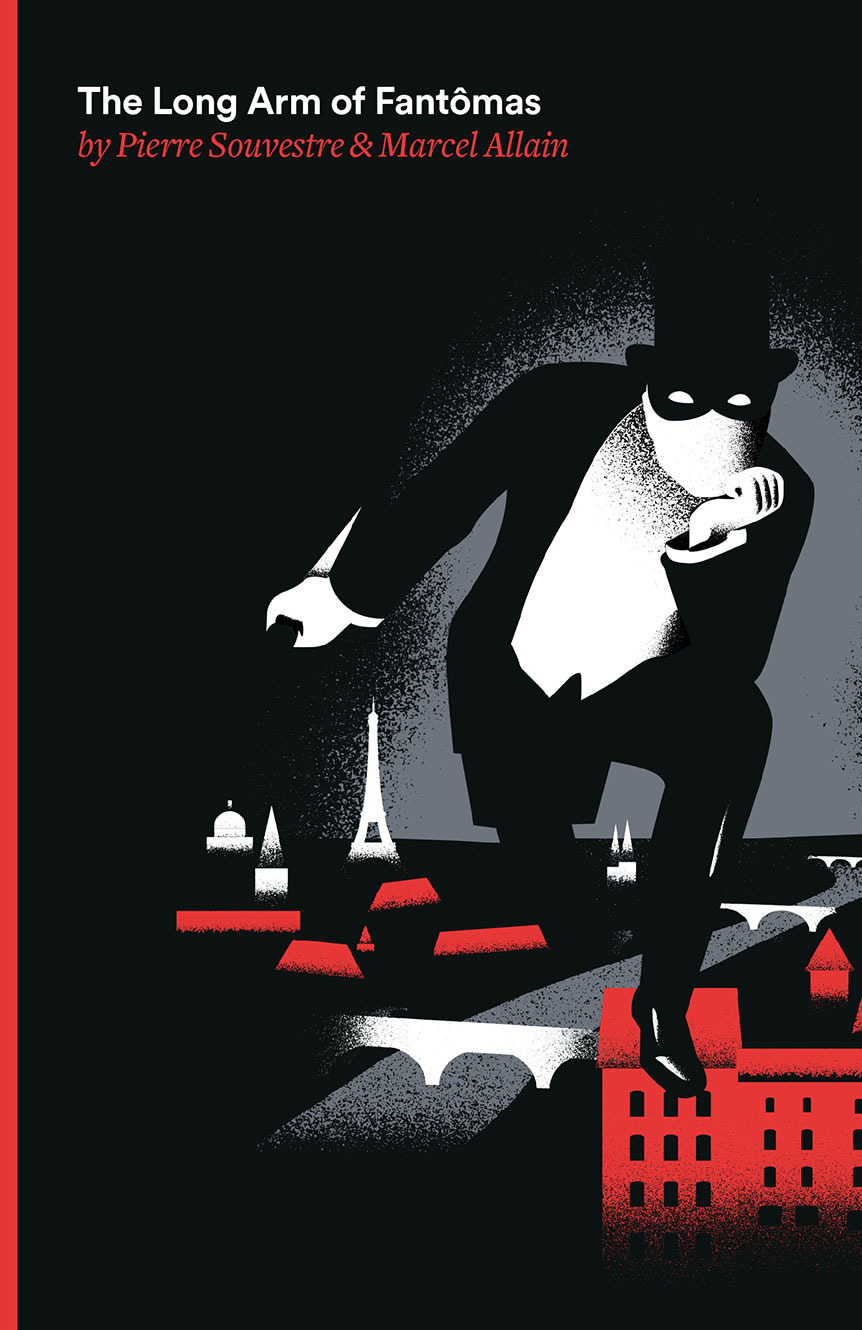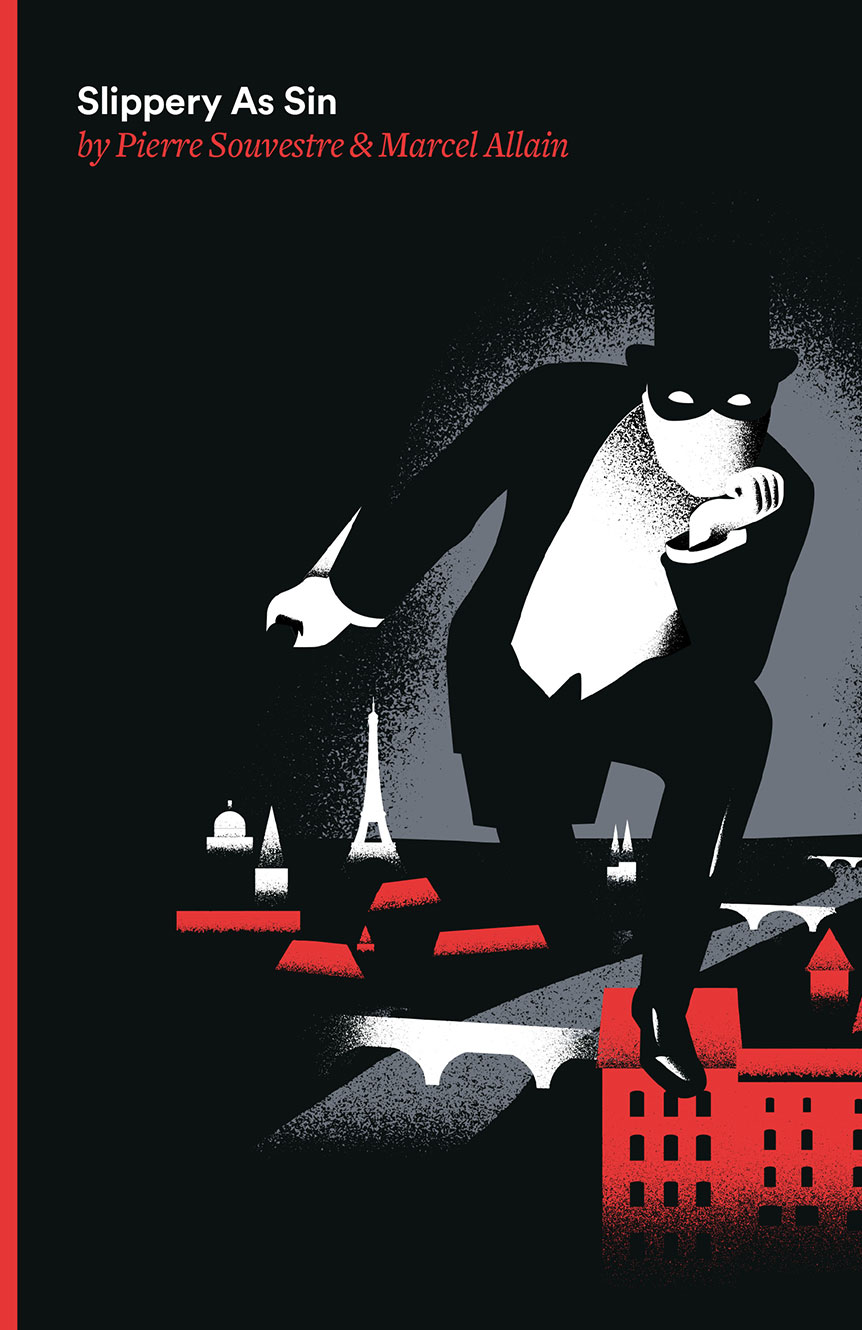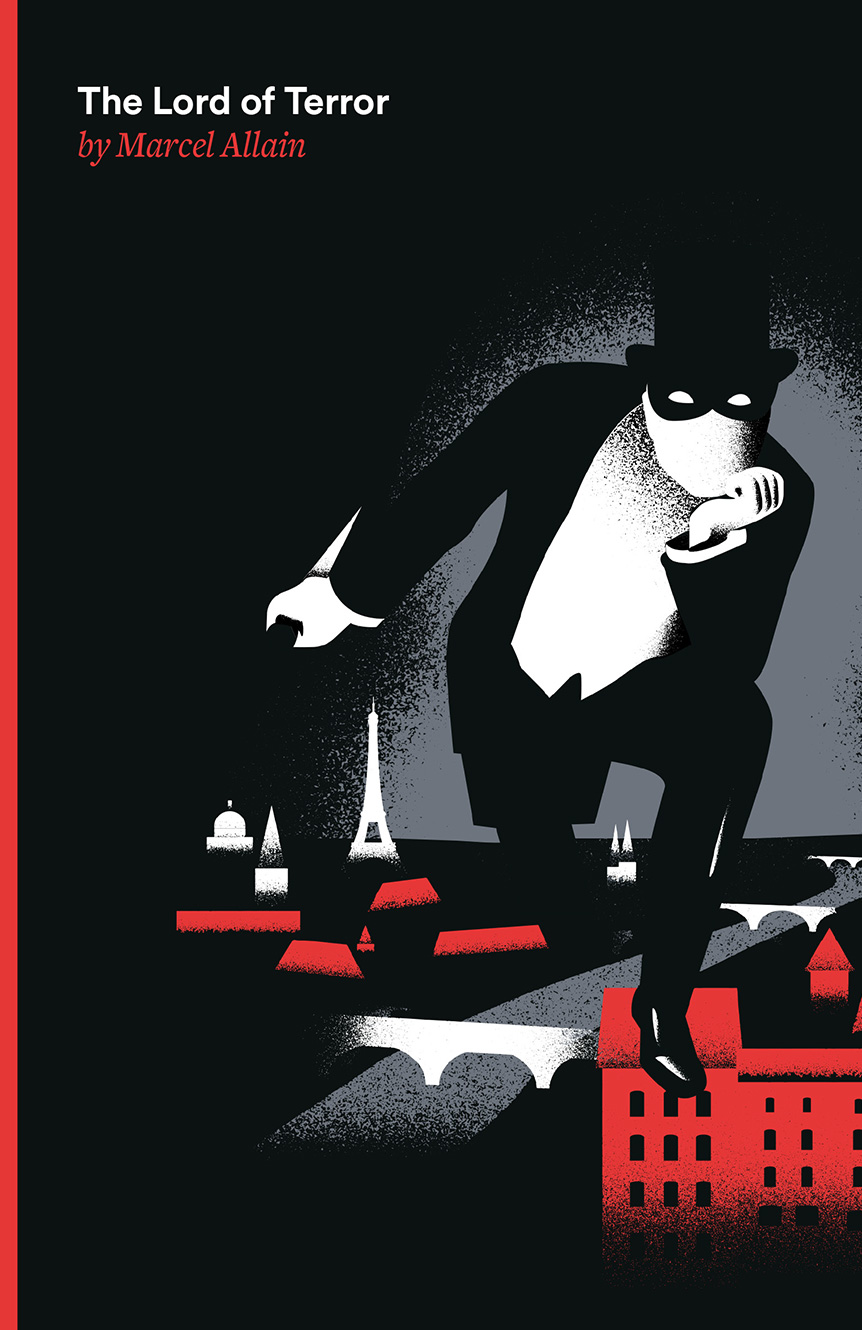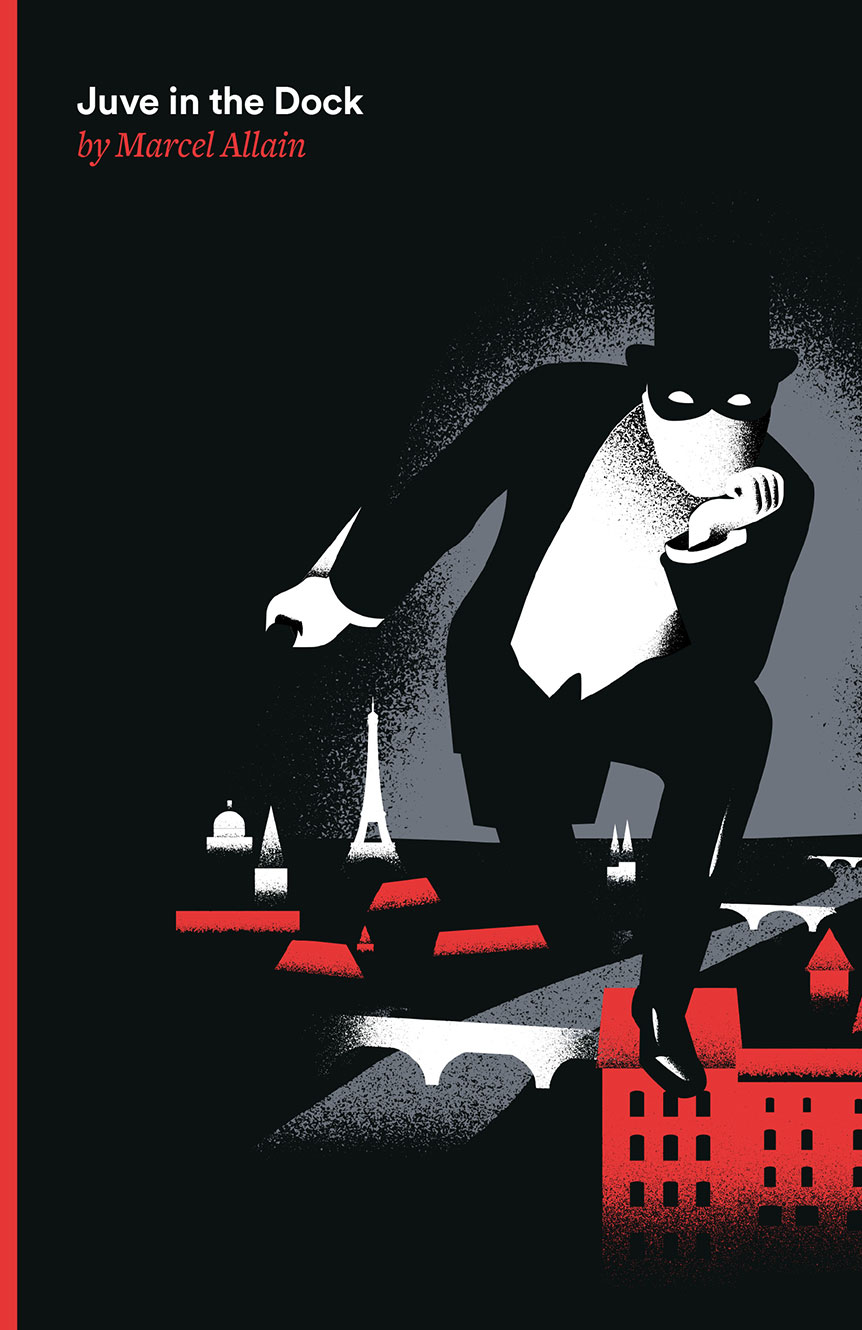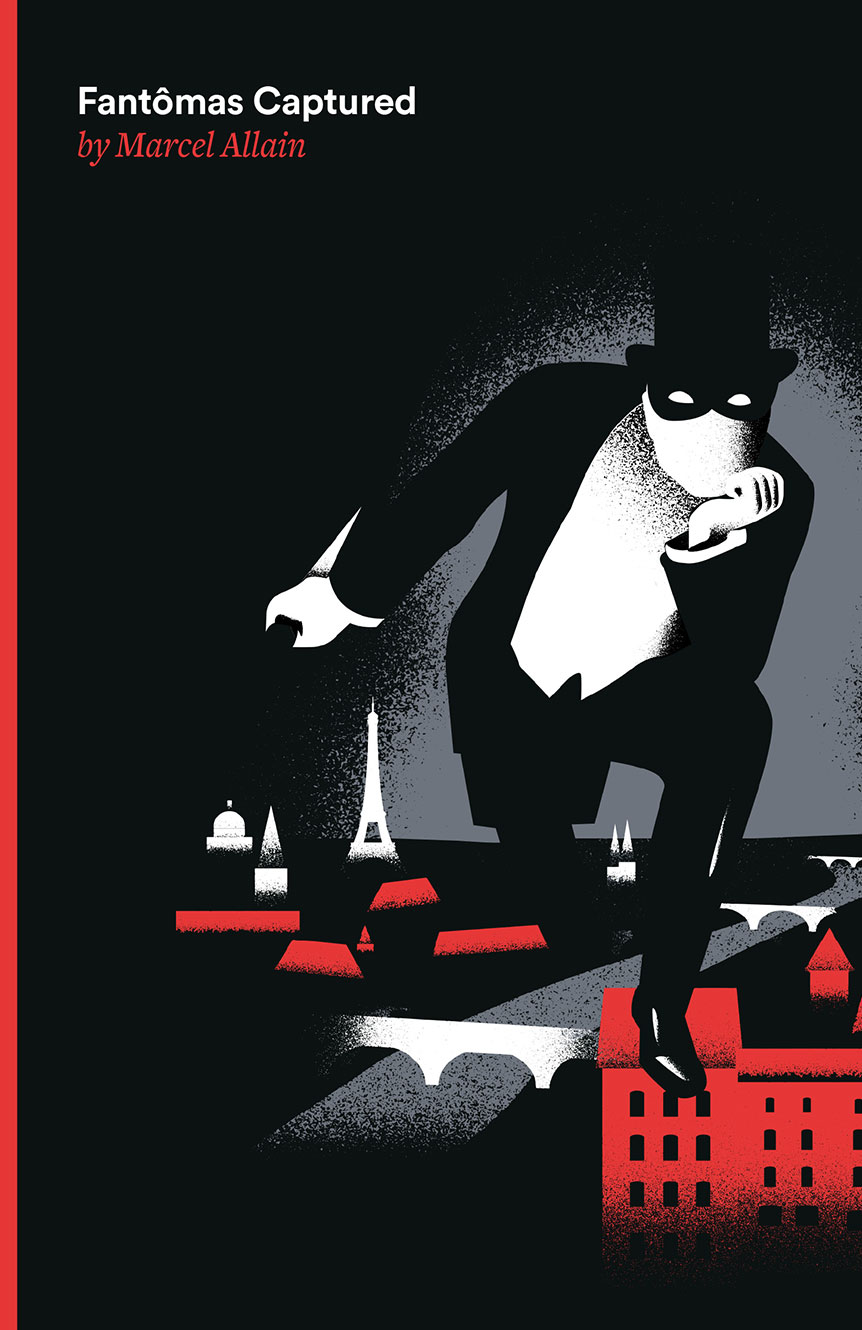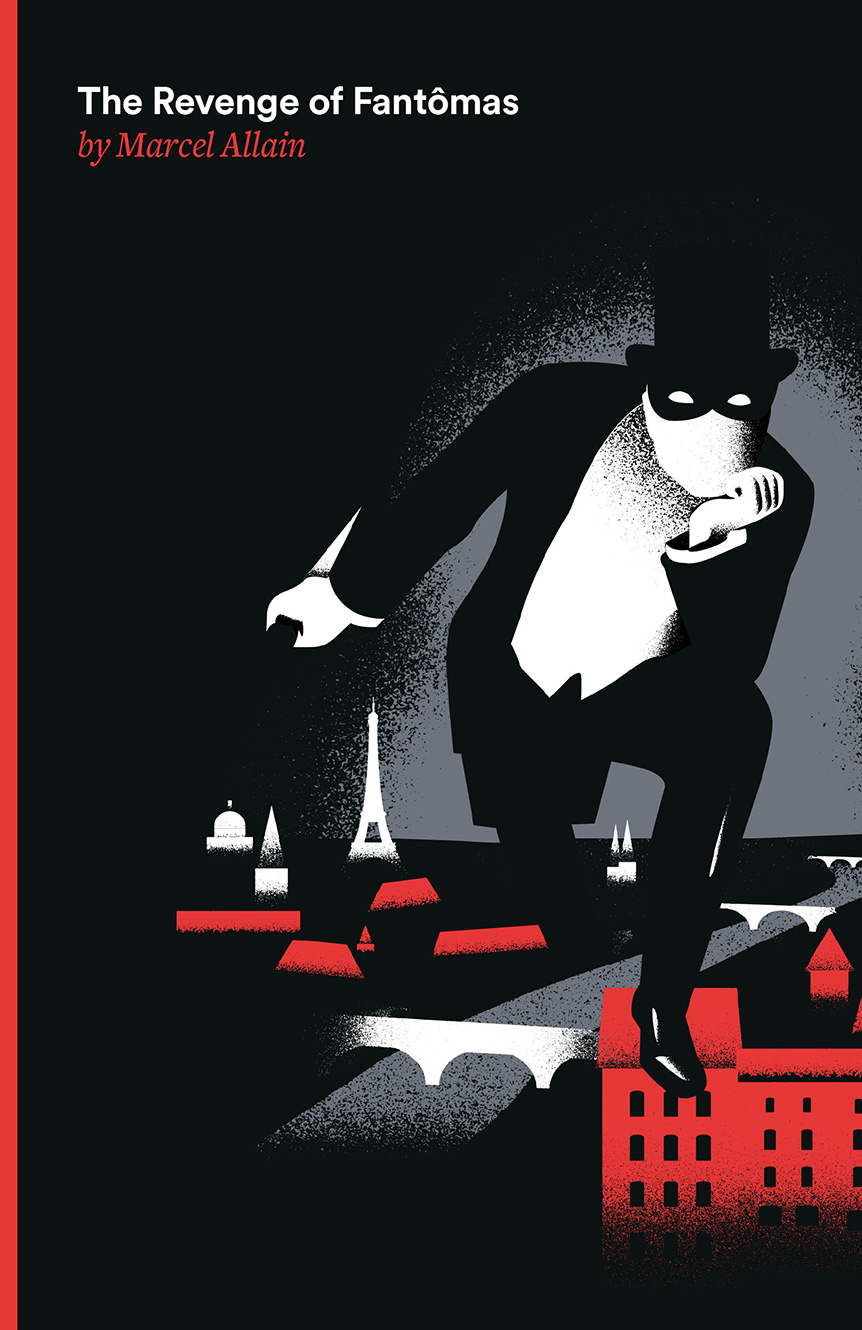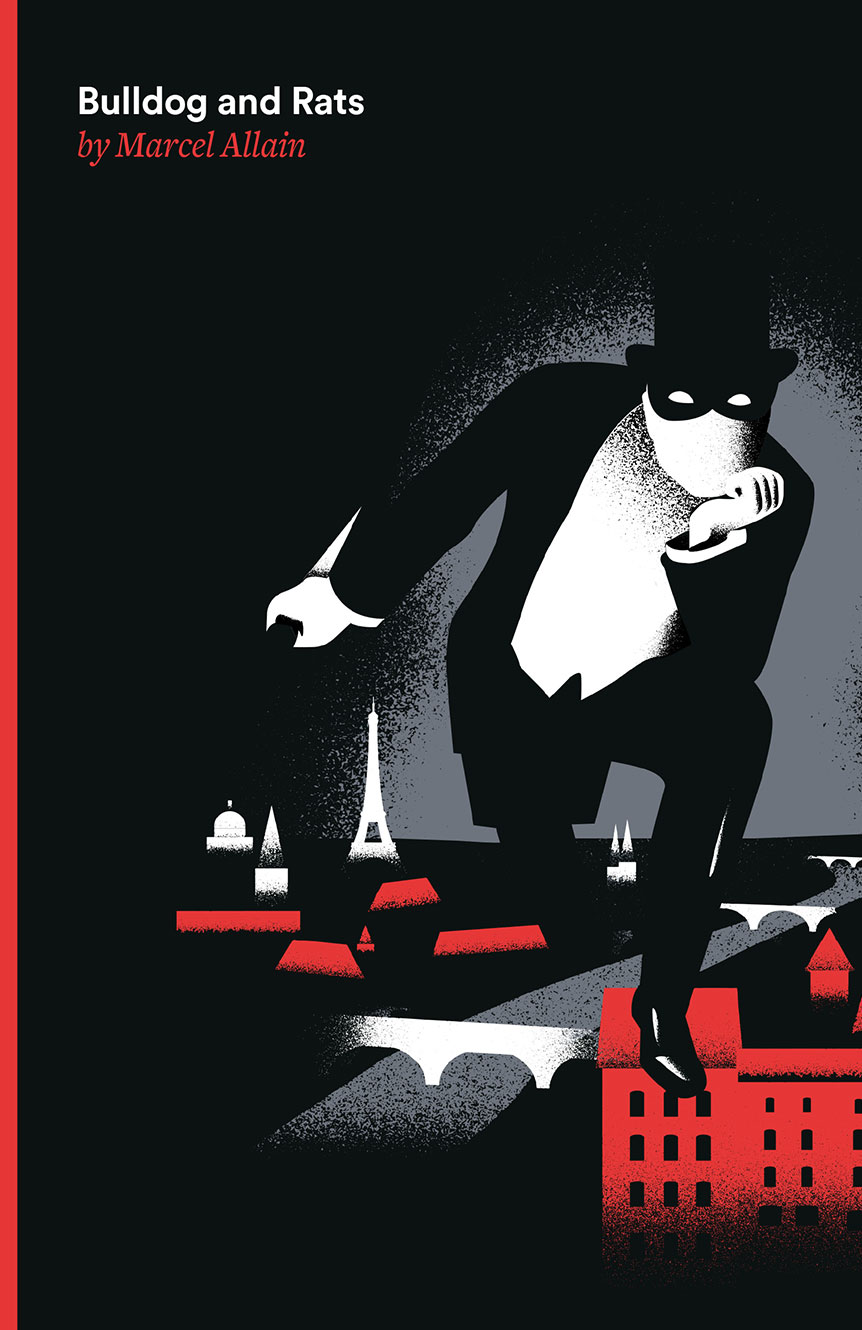A Royal Prisoner
Being the Fifth of the Series of Fantômas Detective Tales
The journalist Fandor befriends the King of Hesse-Weimar during one of his Majesty’s incognito pleasure trips to Paris, but when the King’s mistress is found dead, having fallen from a third-floor window, Inspector Juve is called upon to investigate. When the indomitable detective discovers Lady Beltham, the lover of Fantômas, in disguise among the royal court of Hesse-Weimar, Juve suspects it is none other than the Lord of Terror who is behind the plot against the King.
“From the imaginative standpoint Fantômas is one of the richest works that exist.”
—Guillaume Apollinaire
“Absurd and magnificent lyricism.”
—Jean Cocteau
- A Royal Jag
- Mother Citron’s Tenants
- The Tragedy of the Rue de Monceau
- Who Do They Think I Am?
- By the Singing Fountains
- The Investigation Begins
- The King Receives
- Marie Pascal
- A Party of Three
- Wulfenmimenglaschk
- One Hundred Twenty-Seven Stations
- Camouflage
- The Kingdom of Hesse-Weimar
- Queen Hedwige Receives
- The Mysterious Prison
- The Theft of the Diamond
- On the Right Trail
- A Sleeper
- Free!
- Frederick-Christian
- Horrible Certainty
- Between Us Three—Fantômas!
- Official Opinions
- Juve’s Lies
- “I Want To Live!”
- The Accusing Waistcoat
- The Explosion of the Nord-Sud
- Innocent or Guilty?
- Compromising Discoveries
- Shadowed
- The Death Watch
- The Arrest of Fantômas
1. A Royal Jag
“After all, why not celebrate? It’s the last day of the year and it won’t come again for twelve months.”
It was close upon midnight.
Jerome Fandor, reporter on the popular newspaper, La Capitale, was strolling along the boulevard; he had just come from a banquet, one of those official and deadly affairs at which the guests are obliged to listen to interminable speeches. He had drowsed through the evening and at the first opportunity had managed to slip away quickly.
The theaters were just out and the boulevard was crowded with people intent on making a night of it. Numberless automobiles containing the fashionable and rich of Paris blocked the streets. The restaurants were brilliantly illuminated, and as carriages discharged their occupants before the doors, one glimpsed the neat feet and ankles of daintily clad women as they crossed the sidewalk and disappeared inside, following their silk-hatted escorts, conscious of their own importance.
Many years of active service in Paris as chief reporter of La Capitale had brought Jerome Fandor in touch with a good third of those who constitute Parisian society, and rarely did he fail to exchange a nod, a smile, or half a dozen words of friendly greeting whenever he set foot outdoors.
But in spite of his popularity he led a lonely life—many acquaintances, but few close friends. The great exception was Juve, the celebrated detective.
In fact, Fandor’s complex and adventurous life was very much bound up with that of the police officer, for they had worked together in solving the mystery of many tragic crimes.
On this particular evening, the reporter became gradually imbued with the general spirit of gaiety and abandon which surrounded him.
“Hang it,” he muttered, “I might go and hunt up Juve and drag him off to supper, but I’m afraid I should get a cool reception if I did. He is probably sleeping the sleep of the just and would strongly object to being disturbed. Anyway, sooner or later, I’ll probably run into someone I know.”
On reaching Drouet Square, he espied an inviting restaurant, brilliantly lit. He was about to make his way to a table when the head waiter stopped him.
“Your name, please!”
“What’s that?” replied Fandor.
The waiter answered with ironical politeness:
“I take it for granted you have engaged a table. We haven’t a single vacant place left.”
Fandor had the same luck at several other restaurants and then began to suffer the pangs of hunger, having, on principle, scarcely touched the heavy dishes served at the banquet.
After wandering aimlessly about, he walked toward the Madeleine and turned off into the Rue Royale in the direction of the Faubourg Saint-Honoré.
As he was passing a discreet looking restaurant with many thick velvet curtains and an imposing array of private automobiles before it, he heard his name called.
He stopped short and turned to see a vision of feminine loveliness standing before him.
“Isabelle de Guerray!” he cried.
“And how are you, my dear boy? Come along in with me.”
Fandor had known Isabelle de Guerray when she was a young schoolteacher just graduated from Sévres. Her career, beginning with a somewhat strange and unorthodox affair with a young man of good family who had killed himself for her, had progressed by rapid strides and her name was frequently cited in the minor newspapers as giving elegant “society” suppers, the guests being usually designated by their initials!
Fandor remarked that the fair Isabelle seemed to be putting on weight, especially round the shoulders and hips, but she still retained a great deal of dash and an ardent look in her eyes, very valuable assets in her profession.
“I have my table here, at Raxim’s, you must come and join us,” and she added with a sly smile, “Oh—quite platonically—I know you’re unapproachable.”
A deafening racket was going on in the narrow, oblong room. The habitués of the place all knew each other and the conversation was general. No restraint was observed, so that it was quite permissible to wander about, hat on head and cigar between lips, or take a lady upon one’s knees.
Fandor followed Isabelle to a table overloaded with flowers and bottles of champagne. Here and there he recognized old friends from the Latin Quarter or Montmartre, among them Conchita Conchas, a Spanish dancer in vogue the previous winter. A tiny woman, who might have been a girl of fifteen from her figure, but whose face was marked with the lines of dissipation, ran into him and Fandor promptly put his arm round her waist.
“Hello, if it isn’t little Souppe!”
“Paws down or I’ll scratch,” was the sharp reply.
The next moment he was shaking hands with Daisy Kissmi, an English girl who had become quite a feature of Raxim’s.
Further on he noticed a pale, bald, and already pot-bellied young man, who was staring with lackluster eyes at his whiskey and soda. This premature ruin was listening absent-mindedly to a waiter who murmured mysteriously into his ear.
At the end of the room, surrounded by pretty women, sat the old Duke de Pietra, descendant of a fine old Italian family, and near him Arnold, an actor from the music halls.
The patrons had no choice in regard to the supper, which was settled by the head waiter. Each received a bottle of champagne, Ostend oysters, and, later, large slices of pâté de foie gras, and as the bottles were emptied, intoxication became general, while even the waiters seemed to catch the spirit of abandon. When the Hungarian band had played their most seductive waltzes, the leader came forward to the middle of the room and announced a new piece of his own composition, called “The Singing Fountains.” This met with instant applause and laughter.
As the night wore on the noise became positively deafening. A young Jew named Weil invented a new game. He seized two plates and began scraping them together. Many of the diners followed his example.
“Look here,” exclaimed Conchita Conchas, leaning familiarly upon Fandor’s shoulder, “why don’t you give us tickets for tomorrow to hear these famous Fountains?”
Fandor started to explain that the young woman would be in bed and sound asleep when that event took place, but the Spanish girl, without waiting for the answer, had strolled away.
The journalist rose with the intention of making his escape, when a voice directly behind him made him pause.
“Excuse me, but you seem to know all about these ‘Singing Fountains.’ Will you kindly explain to me what they are? I am a stranger in the city.”
Fandor turned and saw a man of about thirty, fair-haired, with a heavy mustache, seated alone at a small table. The stranger was well built and of distinguished appearance. The journalist suppressed a start of amazement.
“Why, it’s not surprising that you have not heard of them, they are quite unimportant. On the Place de la Concorde there are two bronze monuments representing Naiads emerging from the fountains. You probably have seen them yourself?”
The stranger nodded, and poured out another glass of champagne.
“Well,” continued Fandor, “recently passersby have fancied they heard sounds coming from these figures. In fact, they declare that the Naiads have been singing. A delightfully poetic and thoroughly Parisian idea, isn’t it?”
“Very Parisian indeed.”
“The papers have taken it up, and one you probably know by name, La Capitale, has decided to investigate this strange phenomenon.”
“What was Conchita asking you just now?”
“Oh, nothing, merely to give her a card for the ceremony.”
The conversation continued and turned to other subjects. The stranger ordered more wine and insisted on Fandor joining him. He seemed to be particularly interested in the subject of women and the nightlife of Paris.
“If only I could persuade him to come with me,” thought Fandor. “I’d show him a stunt or two, and what a scoop it would make... if it could be printed! He certainly is drunk, very drunk, and that may help me.”
On the Place de la Concorde, deserted at this late hour, two men, arm in arm, were taking their devious way. They were Fandor and the stranger he had met at Raxim’s.
The journalist, with the aid of an extra bottle, had persuaded his new friend to finish the night among the cafés of Montmartre. The sudden change from the overheated restaurant to the cold outside increased the effects of the alcohol and Fandor realized that he himself was far from sober. As his companion seemed to be obsessed with the idea of seeing the Fountains, the journalist piloted him to the Place de la Concorde.
“There you are,” he exclaimed, “but you see they’re closed. No more singing tonight. Now come and have a drink.”
“Good idea, some more champagne.”
Fandor hailed a taxi, and ordered the chauffeur to drive to the Place Pigalle. As he was shutting the door, he observed an old beggar, who evidently was afraid to ask for alms. Fandor threw him a coin as the taxi started.
It was three in the morning, and the Place Pigalle was crowded with carriages, porters and a constant ebb and flow of all sorts of people.
The journalist and his companion emerged some time later from one of the best known restaurants, both drunk, especially the stranger, who could scarcely keep his feet.
“Look here, we must go... go...”
“Go to bed,” interrupted Fandor.
“No. I know where we can go....”
“But we’ve been everywhere.”
“We’ll go to my rooms... to her rooms... to Susy d’Orsel... she’s my girl... d’ya know, she’s been expecting me for supper since midnight.”
“More supper?”
“Of course... there’s plenty of room left.”
With some difficulty the stranger managed to give the address, 247 Rue de Monceau.
“All right,” said Fandor to himself, “we’ll have some fun; after all, what do I risk?”
While the taxi shook them violently from side to side, Fandor grew comparatively sober. He examined his companion more closely and was surprised to see how well he carried himself in spite of his condition.
“Well,” he summed up, “he certainly has a jag, but it’s a royal jag!”
(End of Chapter 1 of A Royal Prisoner)
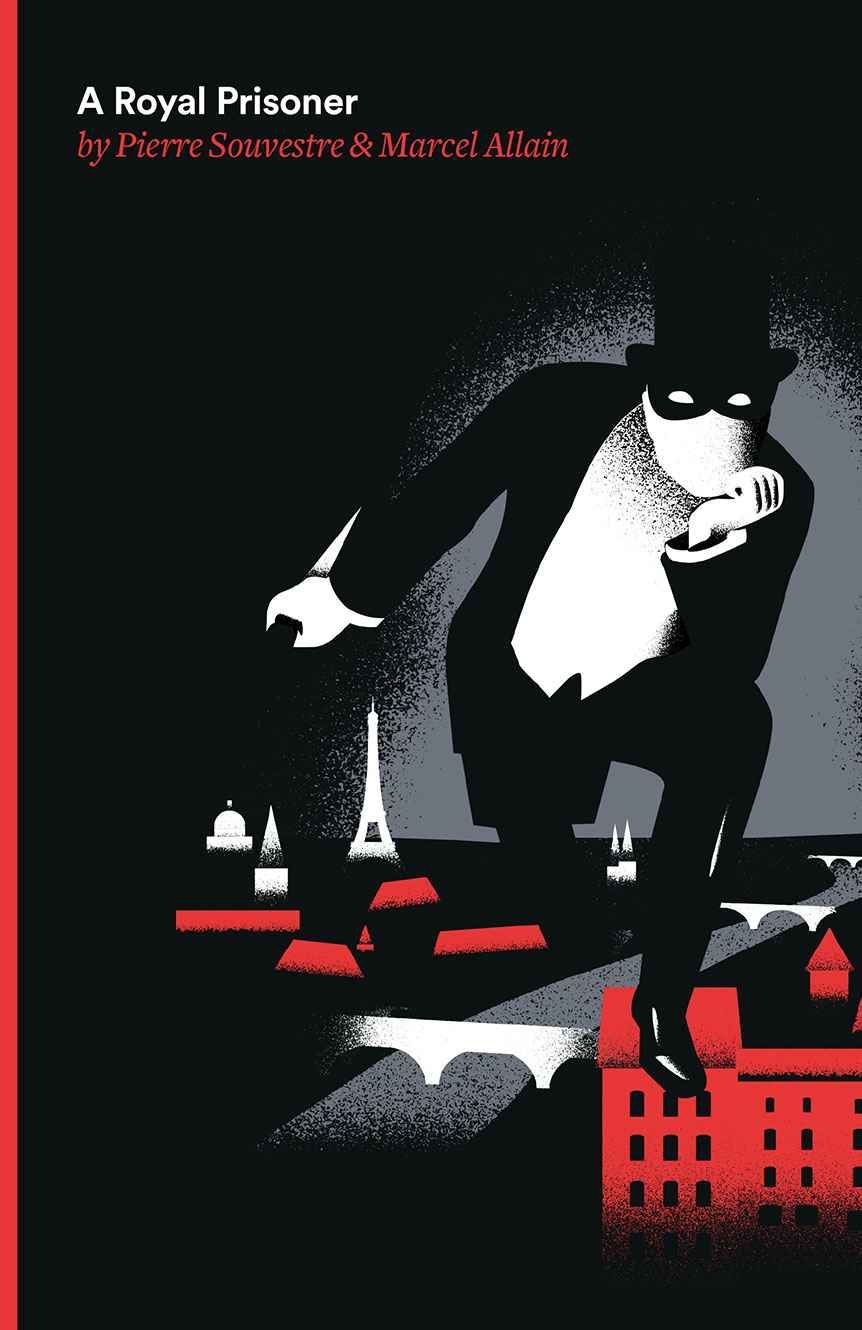
This Antipodes edition, first published in 2014, is a republication of the work first published by Brentano’s Publishers Inc., New York, in 1918. The translation has been slightly altered to reflect modern spelling and usage. Originally published in French as Un Roi Prisonnier de Fantômas in 1911.
ISBN: 978-0-9882026-5-8
186 pages
Antipodes books are distributed worldwide by Ingram Content Group
